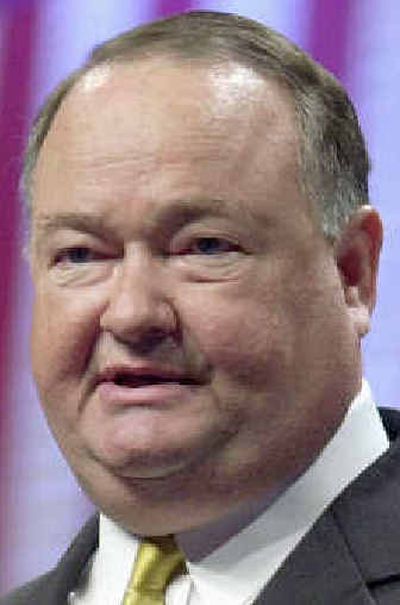A changing of the guard at Wal-Mart?

LITTLE ROCK, Ark. — Perhaps it was inevitable. After the decades of expansion that turned Wal-Mart Stores Inc. into the world’s largest retailer, the discounter’s sales growth is no longer phenomenal, and the culture of founder Sam Walton has started to change.
The resignation last Friday of a Wal-Mart director in an alleged expense scheme was one of a series of setbacks the company has suffered in recent months, but it was also a sign that the guard is indeed changing at Wal-Mart. Tom Coughlin was a 28-year Wal-Mart Stores Inc. veteran who had led the company’s discount and warehouse stores divisions until late last year and was also the retailer’s vice chairman.
Coughlin’s departure from the board could provide some welcome change to the political structure inside Wal-Mart’s Bentonville headquarters, according to John Plummer, who runs a retail executive recruiting firm in Rowaton, Conn., John Rowaton Associates. As older executives leave, some are being replaced by recruits from other companies.
“The old operations group at Wal-Mart is probably what caused a lot of the problems they are having now,” Plummer said, adding that the group “was very incentivized to keep costs as low as possible, which meant violations of … labor laws and good practices.”
Wal-Mart recently paid a fine to settle federal charges that underage workers operated dangerous machinery and the company also agreed to pay $11 million to settle charges that its cleaning contractors used illegal immigrants. In addition, the company is appealing a judge’s decision to certify class action status for up to 1.6 million female employees who claim they were victims of gender-based discrimination at the company.
Burt Flickinger, managing director at Strategic Resources in New York, said same-store sales at Wal-Mart’s core discount store division are shrinking when relatively new product lines like groceries and gasoline are excluded.
Retail analyst Kurt Barnard said Wal-Mart’s expansion into food, prescription drugs, gas and other merchandise categories has been necessary for growth to continue. He said he wouldn’t be surprised if the goods that were once Wal-Mart’s core items — discount store staples — have been tracking in the negative.
People brought up in founder Sam Walton’s way of running the company have been at the top since the founder left day-to-day operations in the 1980s. Walton, who died in 1992, built the company from a small chain of discount stores in 1962 to the world’s largest company, as measured by sales. David Glass was the first chief executive to follow Walton, and Scott followed in 2000 after 20 years with Wal-Mart.
Coughlin, whose mentor was Walton, was known for protecting and advancing the careers of long-time Wal-Mart managers, Flickinger said. But even before Coughlin’s departure, executives who cut their teeth outside of Wal-Mart were gaining power in the company.
Wal-Mart spokesman Jay Allen acknowledged new faces are in key offices. “The make-up has changed, yes. With inordinate speed? I don’t think so,” he said, adding that the mix of outsiders and people who came up through the Wal-Mart system is a healthy one.
“That’s what diversity really is … having a mixture of backgrounds, perspectives,” Allen said.